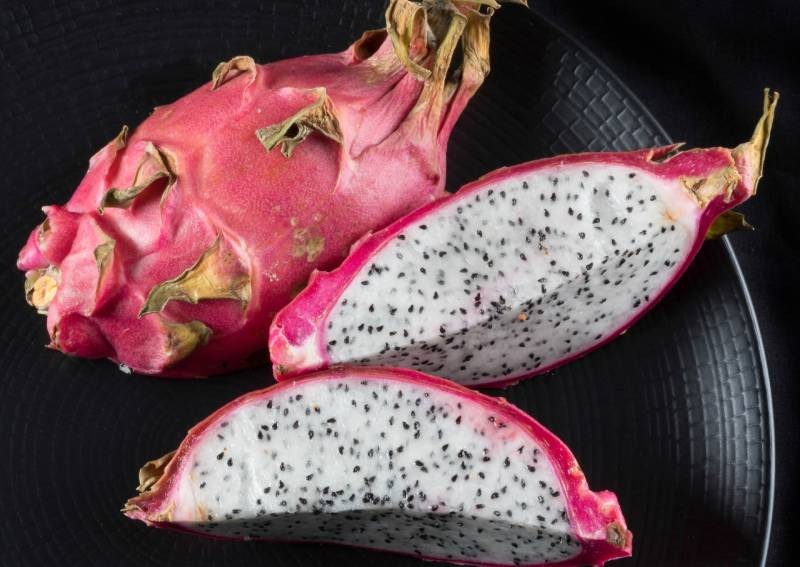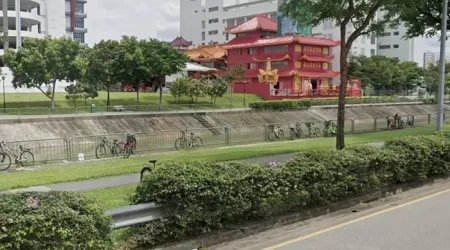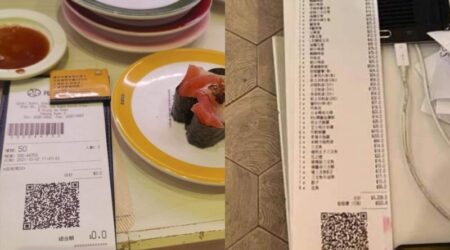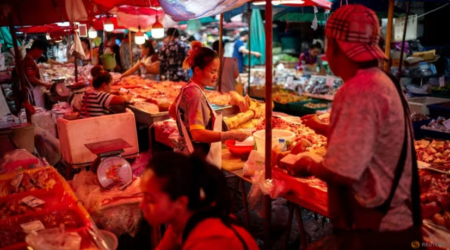Coronavirus traces on Vietnamese, Thai fruit see Chinese cities close stores, impose quarantine

A number of Chinese cities have started emergency screenings for coronavirus on imported food and ordered fruit buyers to quarantine after fresh produce from Southeast Asia tested positive.
Despite little evidence that people can catch Covid-19 from food, at least nine cities in Zhejiang and Jiangxi provinces have reported positive coronavirus results on dragon fruit imported from Vietnam or longan fruit from Thailand since December.
This has led to temporary shutdowns of supermarkets and tighter screening and controls at produce markets selling dragon fruit, especially from Vietnam.
China is on high alert for coronavirus outbreaks as other countries deal with surges in highly infectious Delta and Omicron variants, which could threaten the Beijing Winter Olympics that start next month.
More than 1,000 residents of Shaoxing city in Zhejiang who had close contact with Vietnamese dragon fruit have been ordered to quarantine at home, according to a local government report.
Residents of other cities who visited fruit stores suspected of selling contaminated produce, or have bought imported dragon fruit, have also been told to report to local officials and be tested for coronavirus.
Some fruit store owners in Zhejiang province have been ordered to self-quarantine and paper seals have been pasted to the homes of people who recently bought imported dragon fruit, according to local residents.
“I’m scared, I wouldn’t buy any fruit now, let alone dragon fruit,” said a local resident from Shaoxing who preferred to remain anonymous. She was tested for coronavirus after buying strawberries from a fruit store suspected of being contaminated.
Benlai.com, an e-commerce site providing fresh food, said it had taken down listings for all imported dragon fruit on Dec 24 after reports some from overseas had tested positive for coronavirus.
A worker at a local fruit store in Shaoxing said they had stopped replenishing imported dragon fruit since around Dec 20, and customers have begun asking the origins of fruit before buying.
Pingxiang city in Guangxi province, which borders Vietnam, halted imports of dragon fruit from its neighbour last week, sending fruit prices plummeting at home.
According to the World Health Organisation (WHO), it is highly unlikely that people can contract Covid-19 from food or food packaging.
While the WHO acknowledges someone may become infected by touching a contaminated surface, there is “no evidence to date of viruses that cause respiratory illnesses being transmitted via food or food packaging.”
Though transmission of coronavirus through fruit has never been reported, Chinese experts have not excluded the possibility, and imported frozen and fresh food usually undergoes stringent testing before arriving on supermarket shelves.
Imports of Vietnamese dragon fruit were suspended for a week in September last year, after coronavirus was reportedly found on packaging and cardboard boxes shipped from Quang Ninh province.
In January last year, cherry sales in China also suffered after reports that some imported cherries tested positive for traces of the virus.
For years, China has been Vietnam’s top fruit importer, snapping up nearly 65 per cent of its fruit exports in the first four months of last year, according to data from Vietnam’s Ministry of Agriculture and Rural Development.
China is also the No. 1 market for Vietnamese dragon fruit, accounting for 80 per cent of total exports, said Dang Phuc Nguyen, general secretary of the Vietnam Vegetable and Fruit Association during an interview with Bloomberg last September.
Dragon fruit makes up one-third of Vietnam’s fruit and vegetable exports, which were worth US$3.27 billion (S$4.44 billion) last year, he said.












Leave a Reply